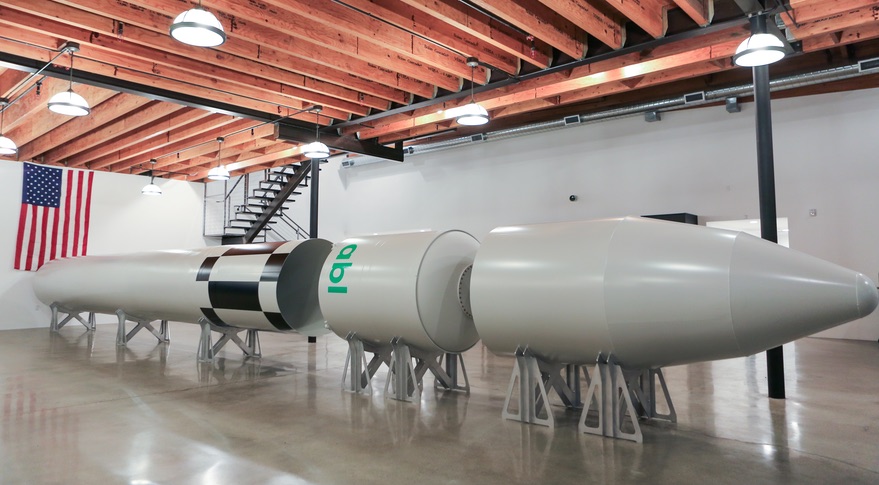Is Lockheed Martin lining up a power grab of UK space industry?
19th Jan 2021
In 2018, Lockheed Martin were awarded a grant from the UK government via the UK Space Agency towards a potential rocket launch from UK soil. The grant was originally planned for the US company to launch from Sutherland in the North West of Scotland. However, recently, Lockheed Martin changed their plans and made the decision to launch from the Shetland Isles instead.
At the time the company didn’t have a launch vehicle, although there were talks of them potentially using a vehicle from Rocket Lab, a company that LM have a strategic investment in. Although two things at that time may have prevented that. Firstly, Rocket Lab CEO, Peter Beck had categorically stated that his rockets would not be launching from the UK. Secondly, the legal framework wasn’t in place to allow US-built launch vehicles from taking off anywhere in the UK. This position has however changed with the introduction of the Trade Safeguard Agreement (TSA) between UK and USA, which will now permit US hardware to launch from the UK. Things have become very interesting since 2018 and even more so since the TSA was initiated.
You probably haven’t heard of ABL Space. It is a space launch company based in USA founded by a former SpaceX employee, Harry O’Hanley.
The company received a 3 year agreement with the UK Air Force Research Laboratory to develop and test launch vehicle engine components.
The company also secured an investment from Lockheed Martin in July 2019, although the amount was not made public.
Lockheed Martin invests in small launch vehicle startup ABL Space Systems – SpaceNews
This all points to a likely strategy of Lockheed Martin of doing two things. Firstly, as we have reported in earlier articles, their lack of UK based vehicle manufacturing means that in order to be part of the UK space industry’s “first to market” crowd, they will need to align themselves with a manufacturer (likely in the USA) to accommodate any maiden launch they have planned.
The second aspect of LM’s plans is that they appear to be trying to cloak themselves in a shroud of respectability and a guise of capability. This becomes more evident with the creation of Athena Space, a consortium made up of Lockheed Martin, CGI UK, Serco and Inmarsat. The importance of this newly formed consortium is that with LM’s poor corporate reputation it works behind the Athena name and enjoys the reasonably better company of the other three (although we reserve the right to exclude Serco from that). The other point is that it gives Lockheed Martin direct access to other competences that on the face of it looks like they can offer the full suite of space launch services (which, of course it doesn’t).
There is another element to the Athena Space strategy. Lockheed Martin is a US military supplier. With the UK in full on union flag flying mode, fuelled in part by the Brexit project, the UK government are all out pushing their “Buy British” agenda. Athena and Lockheed are taking full advantage of that despite the latter being ultimately an American company.
Even a brief look at the social media from both LM and Athena would make you think that Winston Churchill was alive and well and driving the consortium’s marketing efforts.
It would be very easy for the casual observer to mistake Lockheed Martin’s social media as a dig at the likes of Danish/German team, Orbex Space with its “Buy British” and “UK all the way” messaging. Although we are sure their recent “broken partnership” was conducted on friendly terms.
Something else is quite revealing about the Athena Space consortium. At a virtual conference recently they let slip that the creation of Athena Space was to enable them to “keep in step” with the agile “New Space” sector. We revealed in previous articles on this news site that the new space entrepreneurs were not only far exceeding the capabilities of the old industry behemoths (Lockheed Martin, Boeing, Airbus), but they were also moving at a pace far quicker than even the governments that have been keeping those behemoths afloat could even comprehend. The old stalwarts were (and are) losing their grip and losing ground. A new generation were showing them how it was done. So they had to do something
Let’s look back at ABL Space
Interestingly, ABL Space CEO, Harry O’Hanley’s father is Ronald O’Hanley, Chairman of State Street Asset Management Company, which owns 15% of Lockheed Martin shares – a company whom we have already mentioned has invested in ABL Space Systems as well as in Rocket Lab.
The close relationship with Lockheed Martin gives ABL Space access to the UK through Lockheed Martin’s lobbying activities and the renewed access to government through the newly formed Athena Space consortium.
With the Trade Safeguards Agreement in place, all the pieces of the jigsaw are in place for such US companies to secure a significant chunk of the UK’s space business in an attempt to block the progress of innovative new space companies, who could likely place them in the shadows as has happened across the Atlantic with SpaceX, Blue Origin and Rocket Lab.
If the space industry in the UK doesn’t take heed, they will find themselves boxed in by the failed and archaic old school US behemoths carrying out a strategic pincer movement to take a firm grip of the industry, hindering the more innovative and agile operators.
Lockheed’s space business in USA is set to suffer from others making more significant progress…
Lockheed Martin projects decline in space profits in 2019 due to ULA – SpaceNews






Thank you for your comment! It will be visible on the site after moderation.